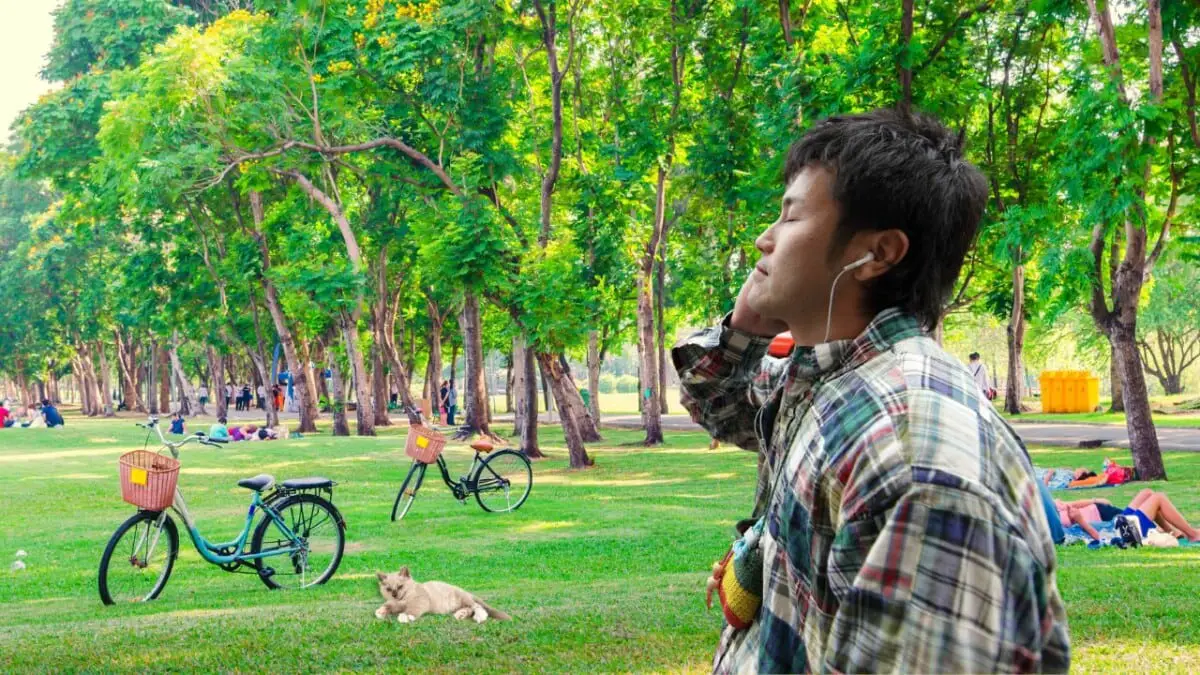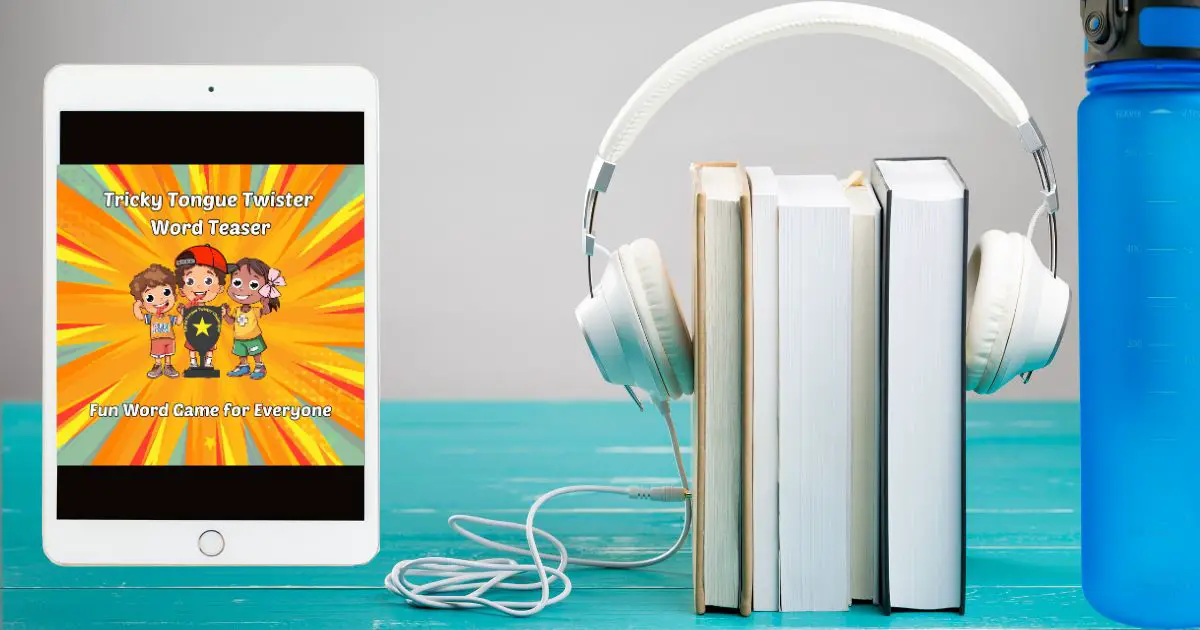As life progresses inevitably, the significance of sustaining an active lifestyle amplifies with age. Senior citizens frequently disregard one avenue to maintain physical and mental fitness, martial arts classes. This article delves into a comprehensive exploration of senior engagement in martial arts, an endeavor that promotes overall health by drawing upon research findings to illuminate its positive impact on both physical and mental well-being.
Seniors should stay active in their old age, particularly through engaging in martial arts, as seniors can become more vulnerable and perceived as easy targets as they grow old. While martial arts may not provide complete protection, having some form of martial arts training is better than none. Martial arts can be a great contribution to seniors‘ overall health and fitness, potentially extending their lives. Therefore, incorporating martial arts into their lives can empower seniors to lead active and healthier lives.
Physical Benefits of Martial Arts for Seniors

Improved Flexibility and Balance
Consistently, the research underscores martial arts’ positive influence in enhancing flexibility and balance across all age groups, including kids and elders. For seniors particularly, this enhancement is crucial to fall and injury prevention. The controlled movements inherent and indispensable to martial arts promote joint mobility.
Furthermore, they contribute significantly towards an overall increase in flexibility. Consequently, seniors enjoy a more stable daily life balanced with improved well-being. This is an outcome paramount for their health.
Moreover, martial arts practice cultivates a heightened sense of body awareness. Seniors foster confidence in their movements and reduce the risk of accidental injuries by developing an acute understanding of their physical capabilities.
Enhanced Cardiovascular Health
Seniors who regularly participate in martial arts classes experience a powerful boost to their cardiovascular health. Studies consistently indicate the significant risk reduction for heart-related issues that such training provides through improved blood circulation, decreased blood pressure, and enhanced overall cardiovascular function. In turn, these benefits bolster heart health and amplify daily activity stamina.
Seniors who participate in martial arts often experience elevated energy levels and enhanced mood, demonstrating the interrelation of mental and physical health. Furthermore, these cardiovascular advantages extend their positive influence into the realm of mental well-being.
Protection and Self-Defense
As seniors age, they may become targets for cowardly criminals who see them as vulnerable to quick robberies or as easy victims to prey on. While traditional martial arts might be challenging for some seniors due to their age, having any form of self-defense is better than none. Having any form of protection can make a significant difference between life and death.
If the senior can strike the assailant in their vital points, this can incapacitate them or buy enough time for the senior to escape and seek help. It’s important to note that most attackers targeting seniors are cowards, and any form of resistance from the senior, through martial arts can deter the aggressor and potentially thwart the attack.
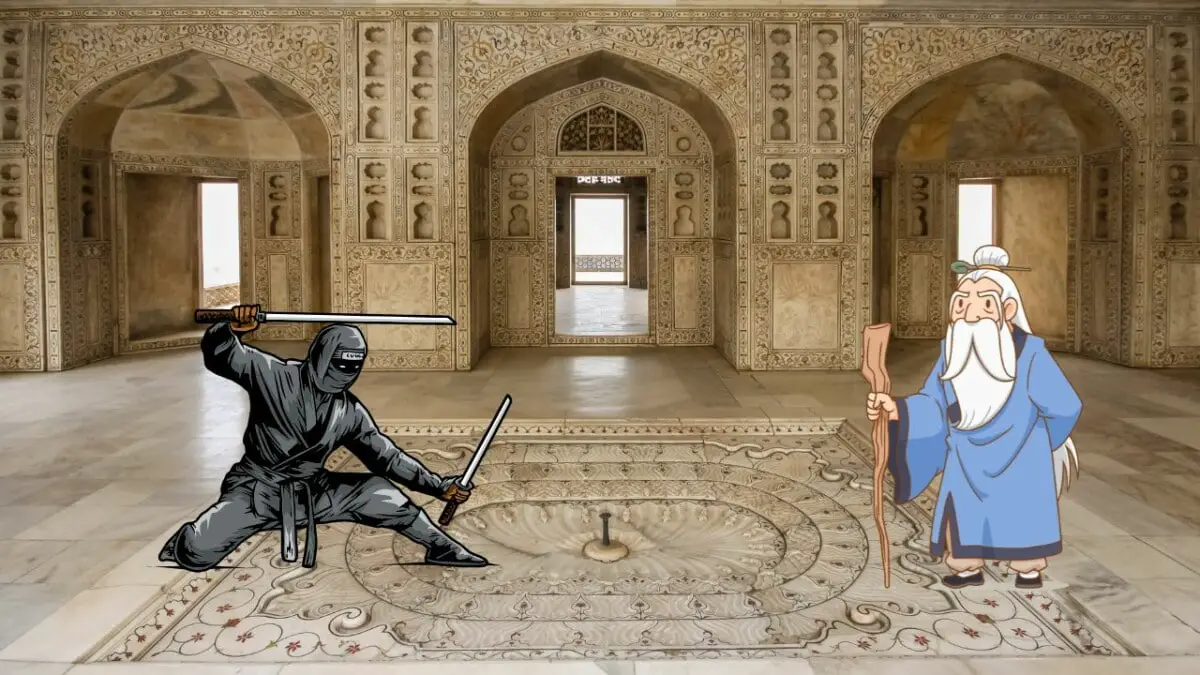
Strength and Endurance
Seniors must prioritize maintaining muscle mass and strength to bolster their daily activities, thereby safeguarding independence. Martial arts training, due to its emphasis on resistance exercises and bodyweight movements, demonstrates effectiveness in muscle building and toning. Active participation in these classes by seniors yields not just improved endurance but enhanced physical fitness. It also results in an overall increase in strength.
Martial arts also foster seniors’ self-reliance and autonomy, as the functional strength they gain translates directly to enhanced performance in daily tasks. Any form of exercise from martial arts can be of great benefit as it can also help prolong a senior’s life.
Weight Management
Seniors must actively manage their weight for optimal health and well-being. Research suggests that martial arts could serve as an invaluable strategy in this endeavor. Regular participation in these practices not only aids metabolism regulation but also facilitates weight control while reducing the potential risk of obesity-related health complications.
Beyond reaping physical benefits, seniors find martial arts classes an engaging and enjoyable avenue to sustain activity levels and a healthy weight. Moreover, the holistic nature of martial arts emphasizes a balanced approach to wellness. It highlights the significance not only of physical activity but also mindful nutrition in attaining and maintaining an ideal weight.
Cognitive Benefits of Martial Arts for Seniors
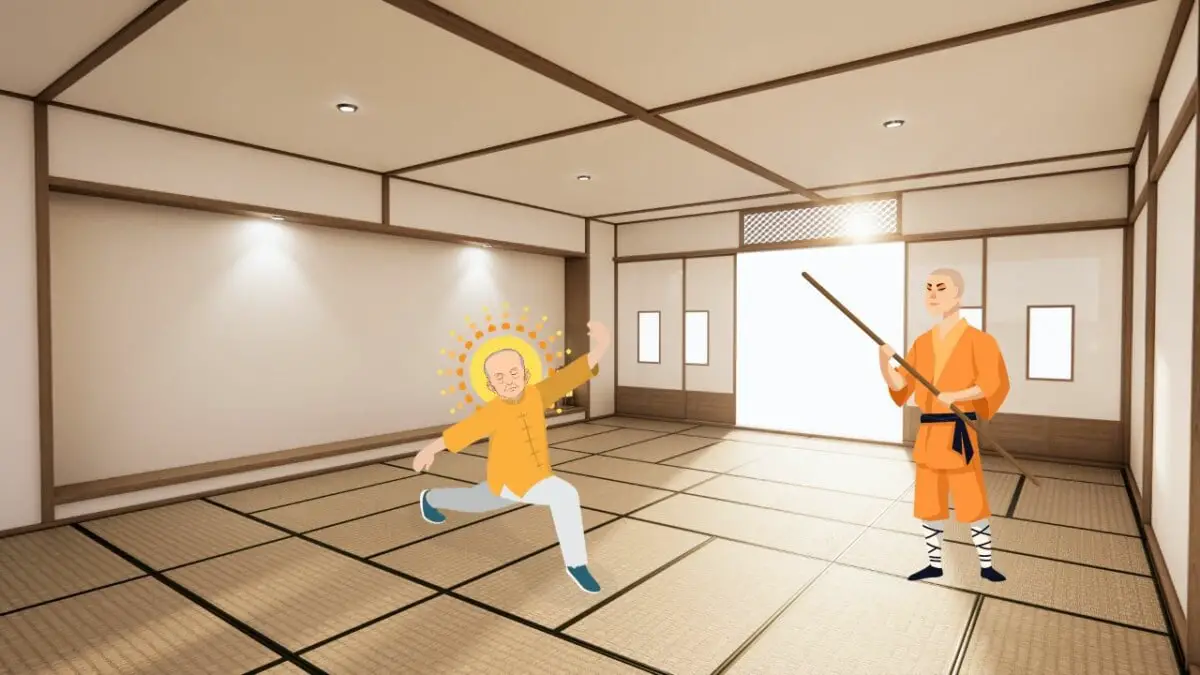
Mental Sharpness and Focus
Seniors who participate in martial arts demand concentration and mental acuity. They avail themselves of a unique opportunity to sharpen their cognitive faculties. Studies suggest the inherent cognitive demands tied to learning and practicing these disciplines enhance mental sharpness and improve focus. This particular form of cognitive stimulation proves significantly beneficial for seniors as it bolsters their overall age-related cognitive function.
The mental engagement demanded by martial arts not only sharpens cognitive skills but also functions as a form of long-term cognitive exercise. It contributes to the preservation of overall cognitive health. It goes beyond mere maintenance, enhancing and fortifying our mental acuity.
Stress Reduction and Emotional Well-being
Research has proven that regular exercise, such as martial arts, significantly reduces stress and enhances emotional well-being. Physical activity releases endorphins which not only promote a positive mood but also alleviate symptoms of anxiety and depression. Seniors who engage in martial arts enjoy not only the physical benefits but also experience stress reduction’s mental and emotional advantages.
Certain martial arts practices, with their emphasis on controlled breathing and mindfulness, engender not only a holistic approach to stress reduction but also cultivate emotional balance and resilience through these meditative aspects.
Social Interaction and Community
Loneliness and social isolation frequently challenge seniors, affecting their mental and physical health. Martial arts classes cultivate a unique, supportive environment for social interaction and community development. These benefits are particularly crucial in addressing the issues faced by senior populations.
Research indicates that seniors who actively participate in group activities such as engaging with martial arts attain elevated levels of social well-being. Consequently, they lead more fulfilling lives filled with greater connectedness.
Moreover, martial arts classes cultivate a profound sense of camaraderie that extends beyond the training space’s boundaries. Such an environment nurtures belonging and shared purpose, consequently creating a support system for its participants.
Cognitive Aging and Memory Improvement
Promising results have emerged from research exploring the link between physical activity, martial arts included, and cognitive aging. Senior individuals who regularly participate in martial arts exhibit improved memory and cognitive function. The amalgamation of physical exercise with mental engagement seems to shield the aging brain by mitigating risks associated with cognitive decline.
Martial arts training further stimulates neuroplasticity, thereby showcasing seniors’ potential to actively influence their cognitive health through regular and sustained participation in such activities. This underlines ongoing cognitive development, thus it is an example of how seniors can proactively shape their mental acuity.
Holistic Well-being Through Martial Arts
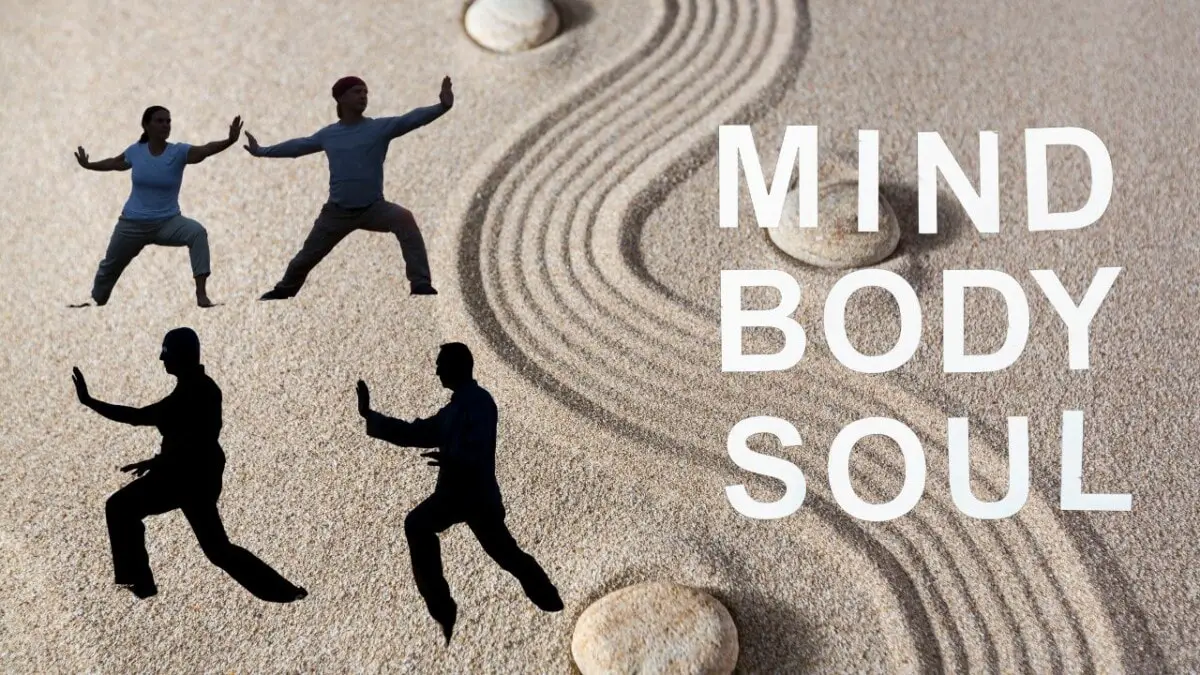
Mental Resilience and Adaptability
Seniors who engage in martial arts experience enhancement of their physical and cognitive aspects, along with the fostering of mental resilience and adaptability. The challenges that arise within these classes demand individuals to adjust to new movements and techniques; this fosters increased mental flexibility. Beyond just benefiting them during studio training sessions, seniors carry over this adaptability into life’s inevitable changes and uncertainties, navigating with a more resilient mindset.
Mastering martial arts techniques, with their incremental progress, powerfully reminds us that continuous effort and persistence do indeed lead to improvement. This shift in mindset can significantly enhance seniors’ approach to daily life challenges.
Sense of Achievement and Self-Efficacy
Seniors, especially those confronting personal or life challenges, can experience transformative empowerment through martial arts. Each milestone they achieve on the structured path of skill development yields a tangible sense of accomplishment that boosts self-efficacy and instills confidence in their abilities. This newfound belief in their capacity to overcome obstacles makes them particularly resilient towards adversity.
Moreover, the supportive community in martial arts classes fulfills a crucial role in celebrating individual achievements. This act reinforces an uplifting cycle of encouragement and fosters personal growth.
Enhanced Sleep Quality
Overall well-being, particularly for seniors confronting possible sleep disruptions, hinges on quality sleep. We associate regular martial arts participation with enhanced sleep quality. This is due to a potent amalgamation of factors including physical exertion, mental focus, and the stress-reducing benefits inherent in martial arts.
Such elements actively promote a more restful slumber. Engaging in martial arts may bring relief from sleep-related issues for seniors, thereby amplifying their overall health and vitality. Furthermore, a consistent establishment of martial arts routines regulates sleep patterns. It furnishes seniors with an advantageous, structured daily rhythm.
Empowering Seniors in their Journey
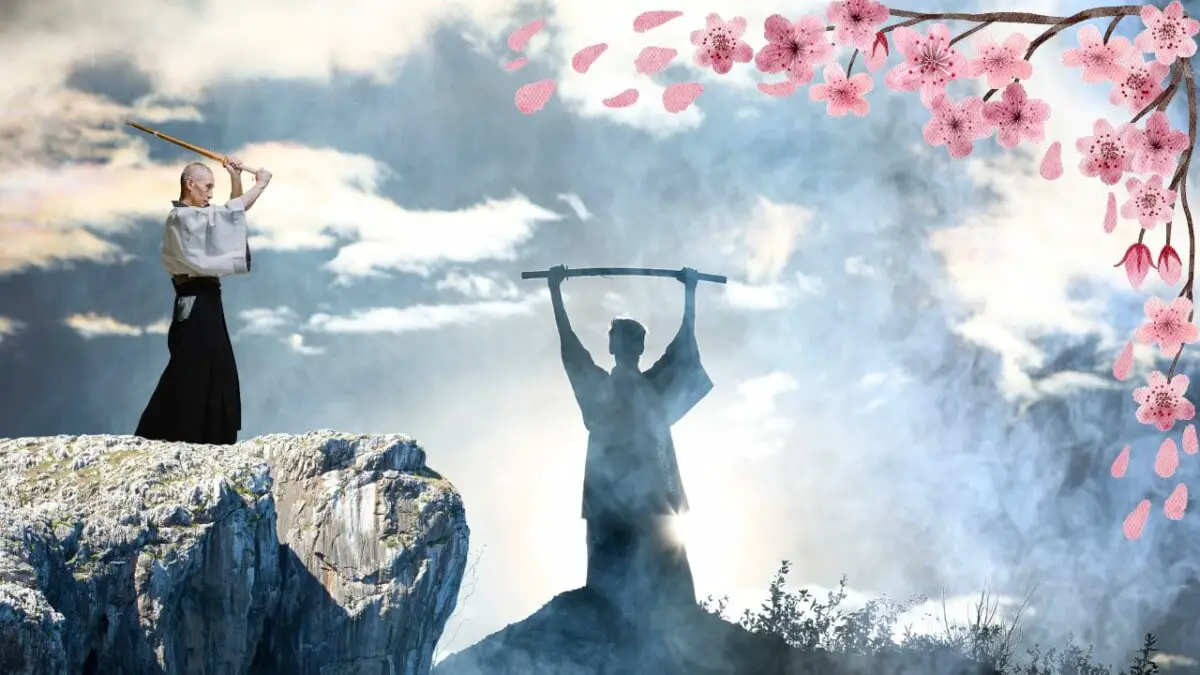
Reinforcing Independence
Reinforcing their independence and self-sufficiency, seniors gain empowerment through martial arts. The skills they acquire in these classes directly enhance functional abilities. This enhancement translates into seniors performing daily tasks with increased ease, a newfound independence that fosters autonomy, reducing reliance on external assistance, and elevating the quality of life.
The holistic nature of martial arts training, which encompasses physical, mental, and emotional aspects ensures a comprehensive approach to supporting seniors in their quest for independence.
Lifelong Learning and Personal Growth
Seniors who engage in martial arts adopt a lifelong learning mindset, constantly challenging themselves to gain new skills and knowledge; their journey of mastering this discipline transcends age.
Their commitment to continuous personal growth yields profound effects. It fosters an optimistic perspective on life, promoting an enhanced quality of existence and instills purpose beyond the bounds typically associated with retirement years. Moreover, the intellectual stimulation that results from acquiring novel techniques aligns with research highlighting mental engagement’s crucial role in fostering healthy aging. It is said to directly fuel cognitive vitality.
Positive Outlook on Aging
Seniors, encouraged by their participation in martial arts, adopt a positive perspective on aging. Martial arts reframe the narrative of aging from being perceived as merely a decline to emphasizing the potential for continued vitality and growth. It changes how seniors view themselves.
When actively engaged in these classes, reporting an improved perception of their aging process leads to enhanced mental well-being and overall life satisfaction among our elderly population. Thus, underlining its significance not just physically but also psychologically at this stage of life.
Furthermore, perceiving seniors as active martial artists challenges stereotypes at the societal level. This perception contributes to a more extensive cultural transformation that acknowledges the diverse capabilities and contributions older individuals can make.
Overcoming Barriers to Martial Arts Participation for Seniors
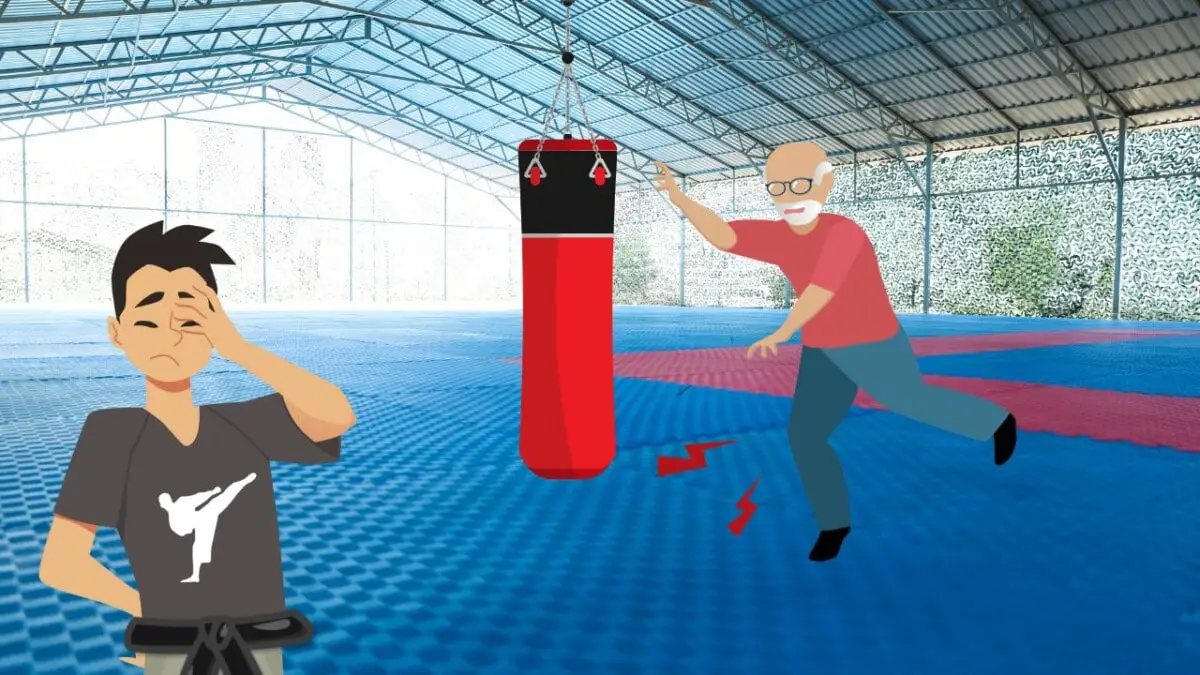
Addressing Physical Limitations
Seniors often nurture concerns about their physical limitations when they contemplate engaging in martial arts. Yet, instructors frequently adapt many of these classes to cater to a diverse spectrum of fitness levels and abilities. They undergo specialized training in modifying movements and exercises for optimal safety and comfort, a testament to the inclusive nature inherent within this discipline.
Moreover, the inclusive nature of martial arts classes creates a supportive environment. In this setting, individuals with diverse physical abilities can partake together on their respective paths toward enhanced health and fitness.
Choosing the Right Martial Art
Not all martial arts possess equal merit. Hence, seniors ought to carefully evaluate their preferences and physical condition before choosing a discipline. Take Tai Chi and Qigong as instances. These low-impact forms of self-defense emphasize gentle movements along with breathing exercises, rendering them appropriate for seniors across varying fitness spectrums.
Seniors can select a martial arts style that aligns with their interests and physical capabilities, thus ensuring an enjoyable experience thanks to the diversity of available styles.
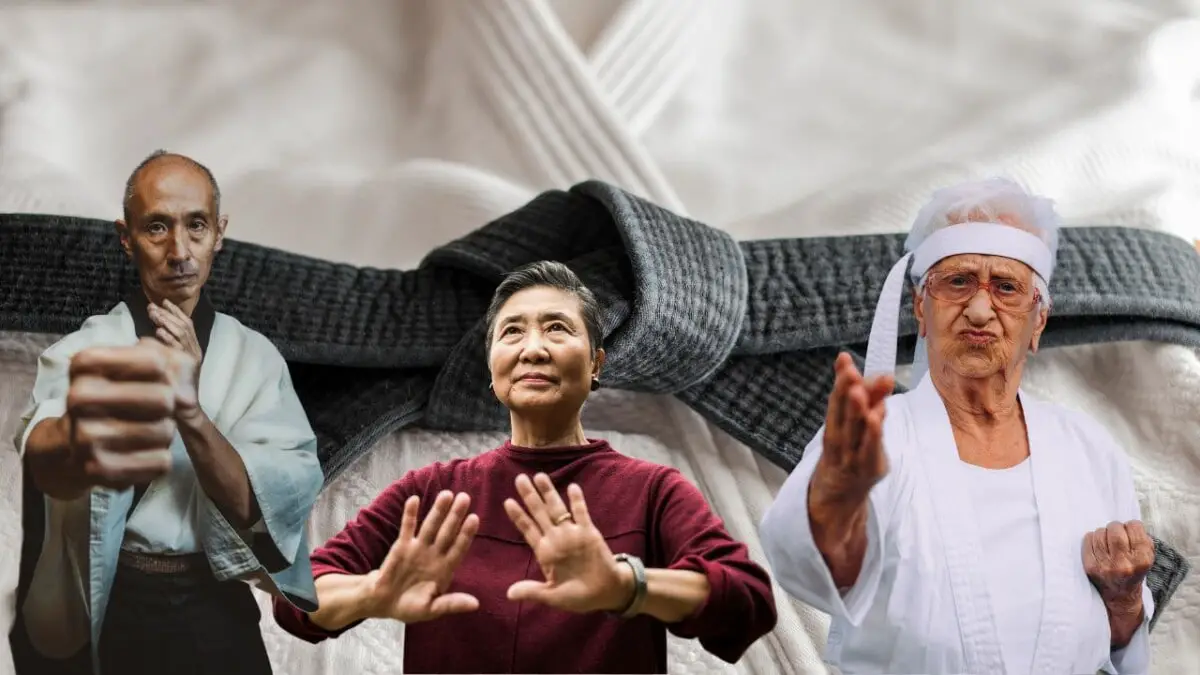
Creating a Supportive Environment
Concerns about competitiveness or a sense of unease may deter seniors from joining martial arts classes. Fostering an inclusive, supportive environment within these communities proves crucial. Instructors and fellow participants must actively foster a sense of belonging and encouragement for seniors, thus enabling them to embrace this rewarding activity with open arms.
In addition, martial arts classes cultivate a sense of community beyond the training sessions. This cultivation provides seniors with an ongoing source of motivation and encouragement to surmount any initial hesitations. This way, they can fully embrace the advantages offered by practicing martial arts.
Conclusion
Conclusively, seniors pursuing martial arts classes extend their decision beyond reaping physical benefits. They adopt a holistic strategy for healthy aging. Martial arts not only enhance flexibility and cardiovascular health but also bolster cognitive well-being and mental resilience, providing seniors with an all-encompassing solution to the challenges they encounter.
This discussion probes additional dimensions such as mental adaptability, improved sleep quality, empowerment, and lifelong learning – underscoring further how profoundly transformative martial arts can be in senior lives.
Senior participants in active martial arts classes stride along an unending path of growth. They feel empowered to confront challenges with resilience and positivity. As we rejoice over the manifold benefits that seniors reap from this discipline-rich tapestry called “martial arts,” our encouragement should serve as their compass towards more empowering pursuits, ones that bring them unparalleled fulfillment.
